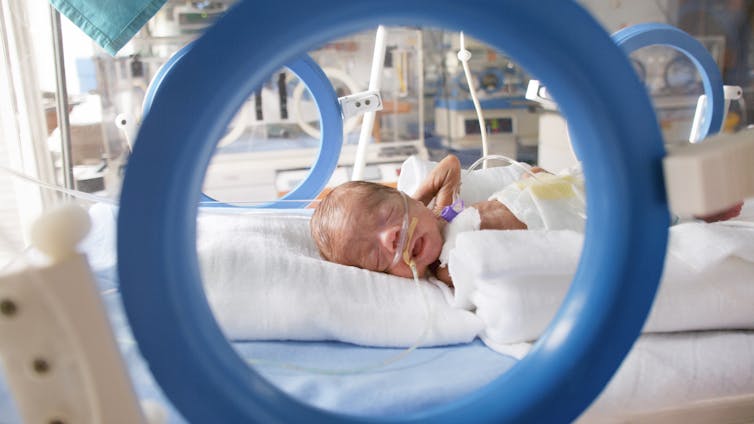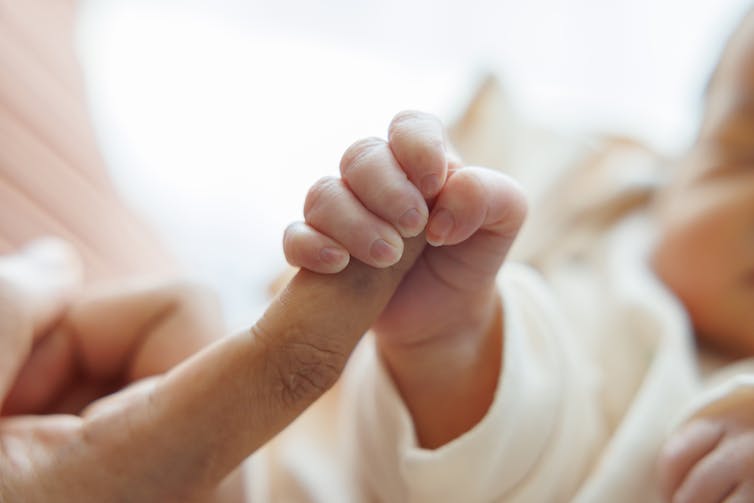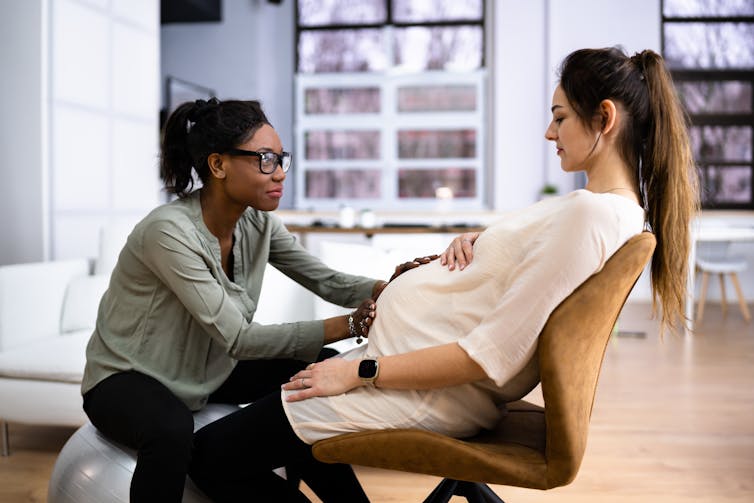
Child Health
4 Things Parents and Youth Athletes Should Know About Concussions
Last Updated on November 12, 2024 by Daily News Staff
(Family Features) Despite the attention drawn to the topic of concussions over the past decade, it can be difficult to find readily available answers about what parents and young athletes should do after sustaining a concussion.
The Katsuyama family started 2023 without a single concussion, even with quite a few hockey and lacrosse seasons under its belt. That changed when Rylan, 11, received two concussions within five months from sports. One week after Rylan’s second concussion, his brother, Brandon, 13, was illegally checked from behind in a hockey game and sustained his first concussion. After clearing protocol in four weeks, he suffered a second concussion six weeks later.
Both boys endured months of headaches, missed school, dizziness, nausea and the added difficulty of navigating a significant injury peers and adults couldn’t see.
Their father, Brad Katsuyama, co-founder of IEX – a disruptive stock exchange featured in the best-selling book by Michael Lewis, “Flash Boys: A Wall Street Revolt” – sought out expert opinions to guide his family’s decisions and shares some acquired knowledge to help parents and athletes.
1. Brain injuries should be diagnosed by a concussion specialist.
There is no X-ray, MRI or CT scan that can show the extent of most concussion-related injuries, which makes diagnosing them subjective. Symptoms can also appear days after a hit. For example, Brandon was cleared by the emergency room after his first concussion, but two days later failed every test administered by a doctor specializing in concussions.
2. Rushing back to play is one of the worst mistakes you can make.
Experts consistently reinforced that coming back from a concussion too soon can significantly increase long-term brain injury risks. There is likely no tournament, playoff game or tryout worth this risk. An example of how to return smartly is Patrice Bergeron of the National Hockey League’s Boston Bruins, who sat out an entire year to properly heal from a concussion.
“Patrice had four more concussions over his career, and each one was less severe than the last,” renowned concussion specialist Dr. Robert Cantu said. “That wouldn’t have happened without recovery from the first one.”
3. Parents and kids need to be honest about symptoms.
The culture in youth sports praises toughness. Getting your “bell rung” and continuing to play can be viewed as a badge of honor. However, this same mentality can cause athletes to lie to parents, trainers and coaches to get back in the game, which can greatly increase long-term risks. Conversely, the same adults can unduly influence a potentially vulnerable player back on to the field of play. Proper diagnosis requires both adults and athletes to be level-headed and honest in their assessment of concussions.
4. Every person and every concussion is different.
One person’s history and experience with concussions seldom carries any relevance to the concussions experienced by another. For example, Katsuyama played varsity football, hockey and rugby for four years in high school and football in college.
“For the longest time, my definition of a ‘real’ concussion was blacking out, vomiting or pupils dilating,” Katsuyama said. “My sons had none of those symptoms after their hits, but it turns out the severity of their injuries were far greater than anything I had experienced.”
The Katsuyamas turned to the Concussion Legacy Foundation and the Cantu Concussion Center, in addition to their local concussion specialist, to advise their path forward, which has led them to racquet sports and golf in the near-term and long-term playing no more than one contact sport in a school year. Learn more at concussionfoundation.org.
Photo courtesy of Shutterstock
SOURCE:
Brad Katsuyama
Discover more from Daily News
Subscribe to get the latest posts sent to your email.
Child Health
Recognizing the Signs of Pediatric Growth Hormone Deficiency: How Early Recognition and Advocacy Helped One Family Find Answers
Diane Benke noticed her son Alex’s height concerns starting at age 7, despite his pediatrician’s reassurances. After persistent worries, they consulted an endocrinologist, leading to a diagnosis of Pediatric Growth Hormone Deficiency (PGHD). Following treatment changes, including a switch to weekly hormone injections, Alex’s growth improved, allowing the family to focus on their well-being.
Last Updated on February 5, 2026 by Daily News Staff
(Family Features) “Our concerns about Alex’s growth began around the age of 7,” said his mother, Diane Benke.
Though Alex measured around the 50th percentile for weight, his height consistently hovered around the 20th percentile. Benke’s instincts told her something wasn’t quite right.
“I kept asking our pediatrician if this could mean something more,” she said. “Each time, I was reassured that everything was fine. After all, I’m only 5 feet tall myself.”
At first, Benke tried setting her worries aside. Alex was one of the youngest in his class, and she wondered if he could simply be a “late bloomer.”
However, as Alex progressed through elementary school, particularly in the 4th and 6th grades, his height percentile dropped into the single digits. The height difference between Alex and his peers became impossible to ignore.
Despite Benke’s growing concerns, their pediatrician continued to assure them Alex was fine.
“We were told as long as he was making some progress on the growth chart, there was no need to worry,” she said, “but we were never actually shown the charts.”
It wasn’t until one of Benke’s friends confided that her own daughter had recently been diagnosed with Pediatric Growth Hormone Deficiency (PGHD) that she decided to seek an endocrinologist.
“Although it took several months to get an appointment,” Benke said, “we were determined to get more answers.”
Navigating the Diagnosis Process
Getting a diagnosis for many medical conditions can be a long journey. However, early detection and diagnosis of PGHD is important. It can help minimize the impact on overall health and support optimal growth.
Once Alex was seen by a pediatric endocrinologist, he underwent a series of evaluations, including bloodwork, a bone age X-ray to compare his chronological age with his skeletal age and a growth hormone stimulation test, which measures the body’s ability to produce growth hormone. He also had a brain MRI to rule out the potential of any pituitary abnormalities.
The results of these tests confirmed the diagnosis of PGHD, a rare condition that occurs when the pituitary gland does not produce enough growth hormone. PGHD affects an estimated 1 in 4,000-10,000 children.
Some common signs parents might notice include: their child being significantly shorter than other kids their age, slower growth rate over time, delayed puberty, reduced muscle strength or lower energy levels, slower bone development and delayed physical milestones.
“Receiving Alex’s diagnosis was a relief,” Benke said. “It provided clarity and a path forward.”
Moving Forward with Treatment
“While the diagnosis process was exhausting, starting treatment made the process worthwhile,” Benke said.
For decades, daily injections of a drug called somatropin, which is similar to the growth hormone your body produces, have been the standard of care for PGHD. It wasn’t until 2015 that the Growth Hormone Research Society recognized the need for a long-acting growth hormone (LAGH), offering once-weekly dosing as an alternative to daily injections.
Benke explained navigating the insurance approval process was another challenge.
“Our insurance required us to try a daily medication before approving a weekly option,” she said.
Alex spent three months on daily medication, often missing doses, before he was approved to switch to a weekly treatment option.
“The weekly option made such a positive impact,” Benke said. “We now have minimal disruptions to our daily routine and Alex hasn’t missed a single dose since.”
Beyond a more convenient dosing option, the change gave Benke peace of mind.
“We could focus more on being a family again, without the daily worries of his next dose,” she said.
If you’re concerned about your child’s growth, talk to their doctor as soon as possible. Early diagnosis is important, as treatment becomes less effective once a child’s bones stop growing.
Benke’s advice to other parents: “Trust your instincts. If something feels wrong, seek out a specialist and push for answers and don’t give up, even when faced with hurdles… Stay hopeful and persistent – it’s a journey worth fighting for.”
Visit GHDinKids.com to download a doctor discussion guide to help prepare for your next appointment.
SOURCE:
Skytrofa
Discover more from Daily News
Subscribe to get the latest posts sent to your email.
Lifestyle
How to reduce gift-giving stress with your kids – a child psychologist’s tips for making magic and avoiding tears
Reduce gift-giving stress with kids: A child psychologist shares practical rules for stress-free gift giving with kids—how many gifts to give, what holds attention, and how to avoid holiday tears.
Last Updated on January 9, 2026 by Daily News Staff

Dive into “The Knowledge,” where curiosity meets clarity. This playlist, in collaboration with STMDailyNews.com, is designed for viewers who value historical accuracy and insightful learning. Our short videos, ranging from 30 seconds to a minute and a half, make complex subjects easy to grasp in no time. Covering everything from historical events to contemporary processes and entertainment, “The Knowledge” bridges the past with the present. In a world where information is abundant yet often misused, our series aims to guide you through the noise, preserving vital knowledge and truths that shape our lives today. Perfect for curious minds eager to discover the ‘why’ and ‘how’ of everything around us. Subscribe and join in as we explore the facts that matter. https://stmdailynews.com/the-knowledge/
Discover more from Daily News
Subscribe to get the latest posts sent to your email.
health and wellness
Texas cities have some of the highest preterm birth rates in the US, highlighting maternal health crisis nationwide

Texas cities have some of the highest preterm birth rates in the US, highlighting maternal health crisis nationwide
Revealing disparities that drive preterm birth rates
The March of Dimes report scored the U.S. overall a D+ grade on preterm birth rate at 10.4%, but states differ dramatically in their scores. New Hampshire, for example, scored an A- with 7.9% of infants born prematurely, while Mississippi, where 15% of infants are born prematurely, scored an F. Texas’ rates aren’t the worst in the country, but it scores notably worse than the national rate of 10.4%, with 11.1% of babies – 43,344 in total – born prematurely in 2024. And Texas has an especially large effect on the low national score because 10 of the 46 cities that receive a D or F grade – defined in the report as a rate higher than the national rate of 10.4% – are located there. In 2023, Texas had the highest number of such cities in the U.S. That may be in part because access to maternal care in Texas is so limited. Close to half of all counties across the state completely lack access to maternity care providers and birthing facilities, compared with one-third of counties across the U.S. Moreover, more counties in Texas are designated as health professional shortage areas, meaning they lack enough doctors for the number of people living in these areas. Shortages exist in 257 areas in Texas for primary care doctors, 149 for dentists and 251 for mental health providers. But even against the backdrop of geographic differences in health care access, the starkest contribution to the state’s preterm birth rates comes from ethnic and racial disparities. Mothers of non-Hispanic Black (14.7%), American Indian/Alaskan Native (12.5%), Pacific Islander (12.3%) and Hispanic (10.1%) descent have babies prematurely much more often than do mothers who are non-Hispanic white (9.5%) or Asian (9.1%). These numbers reflect the broader landscape of maternal health in the U.S. Although nationwide maternal mortality rates decreased from 22.3 to 18.6 deaths per 100,000 live births from 2022 to 2023, Black women died during pregnancy or within one year after childbirth at almost three times the rate (50.3%) of white (14.5%), Hispanic (12.4%) and Asian (10.7%) women.
Preterm birth in context
Having a baby early is not the normal or expected outcome during pregnancy. It occurs due to complex genetic and environmental factors, which are exacerbated by inadequate prenatal care. According to the World Health Organization, women should have eight or more doctor visits during their pregnancy. Without adequate and quality prenatal care, the chances of reversing the preterm birth trends are slim. Yet in Texas, unequal access to prenatal care remains a huge cause for concern. As the March of Dimes report documents, women of color in Texas receive adequate prenatal care at vastly lower rates than do white women – a fact that holds true in several other states as well. In addition, Texas has the highest uninsured rate in the nation, with 17% of women uninsured for health coverage, compared with a national average of 8%. Nationwide, public health experts, community advocates and families are calling for comprehensive health insurance to help cover the costs of prenatal care, particularly for low-income families that primarily rely on Medicaid for childbirth. Cuts to funding for the Affordable Care Act and Medicaid outlined in the 2025 Budget Reconciliation Act make it likely that more Americans will lose access to care or see their health care costs balloon. But state-level action may help reduce access barriers. In Texas, for example, a set of laws passed in 2025 may help improve access to care before, during and after pregnancy. Texas legislators funded initiatives targeted at workforce development in rural areas – particularly for obstetrician-gynecologists, emergency physicians and nurses, women’s preventive safety net programs, and maternal safety and quality improvement initiatives. Rising rates of chronic diseases, such as hypertension, obesity and diabetes, also contribute to women giving birth prematurely. While working with the state maternal mortality and morbidity review committee, my team and I found that cardiovascular conditions contributed to the 85 pregnancy-related deaths that occurred in 2020. An upward trend in obesity, diabetes and hypertension before pregnancy are pressing issues in the state, posing a serious threat to fetal and maternal health.Learning from other countries
These statistics are grim. But proven strategies to reduce these and other causes of maternal mortality and morbidity are available. In Australia, for instance, maternal deaths have significantly declined from 12.7 per 100,000 live births in the early 1970s to 5.3 per 100,000 between 2021 and 2022. The reduction can be linked to several medical interventions that are based on equitable, safe, woman-centered and evidence-based maternal health services. In Texas, some of my colleagues at Texas A&M University use an equitable, woman-centered approach to develop culturally competent care centered on educational health promotion, preventive health care and community services. Utilizing nurses and nonmedical support roles such as community health workers and doulas, my colleagues’ initiatives complement existing state efforts and close critical gaps in health care access for rural and low-income Texas families. Across the country, researchers are using similar models, including the use of doulas, to address the Black maternal health crisis. Research shows the use of doulas can improve access to care during pregnancy and childbirth, particularly for women of color.
It’s all hands on deck
There isn’t one, single risk factor that leads to a preterm birth, nor is there a universal approach to its prevention. Results from my work with Black mothers who had a preterm birth aligns with what other experts are saying: Addressing the maternal health crisis in the U.S. requires more than policy interventions. It involves the dismantling of system-level and policy-driven inequities that lead to high rates of preterm births and negative pregnancy and childbirth outcomes, particularly for women of color, through funding, research, policy changes and community voices. Although I had my preterm birth in Nigeria, my story and those shared by the Black mothers I have worked with in the U.S. show eerily similar underlying challenges across different settings. Kobi V. Ajayi, Research Assistant Professor of Maternal and Child Health, Texas A&M University This article is republished from The Conversation under a Creative Commons license. Read the original article.Discover more from Daily News
Subscribe to get the latest posts sent to your email.
